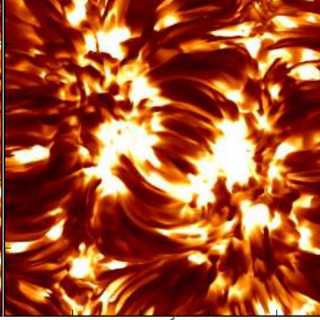Asensio-Ramos, A.; López Ariste, A.
Referencia bibliográfica
Astronomy and Astrophysics, Volume 518, id.A6
Fecha de publicación:
7
2010
Revista
Número de citas
2
Número de citas referidas
2
Descripción
Context. The image degradation produced by atmospheric turbulence and
optical aberrations is usually alleviated using post-facto image
reconstruction techniques, even when observing with adaptive optics
systems. Aims: These techniques rely on the development of the
wavefront using Zernike functions and the non-linear optimization of a
certain metric. The resulting optimization procedure is computationally
heavy. Our aim is to alleviate this computational burden.
Methods: We generalize the extended Zernike-Nijboer theory to carry out
the analytical integration of the Fresnel integral and present a natural
basis set for the development of the point spread function when the
wavefront is described using Zernike functions. Results: We
present a linear expansion of the point spread function in terms of
analytic functions, which, in addition, takes defocusing into account in
a natural way. This expansion is used to develop a very fast
phase-diversity reconstruction technique, which is demonstrated in terms
of some applications. Conclusions: We propose that the linear
expansion of the point spread function can be applied to accelerate
other reconstruction techniques in use that are based on blind
deconvolution.
Proyectos relacionados

Magnetismo, Polarización y Transferencia Radiativa en Astrofísica
Los campos magnéticos están presentes en todos los plasmas astrofísicos y controlan la mayor parte de la variabilidad que se observa en el Universo a escalas temporales intermedias. Se encuentran en estrellas, a lo largo de todo el diagrama de Hertzsprung-Russell, en galaxias, e incluso quizás en el medio intergaláctico. La polarización de la luz
Tanausú del
Pino Alemán